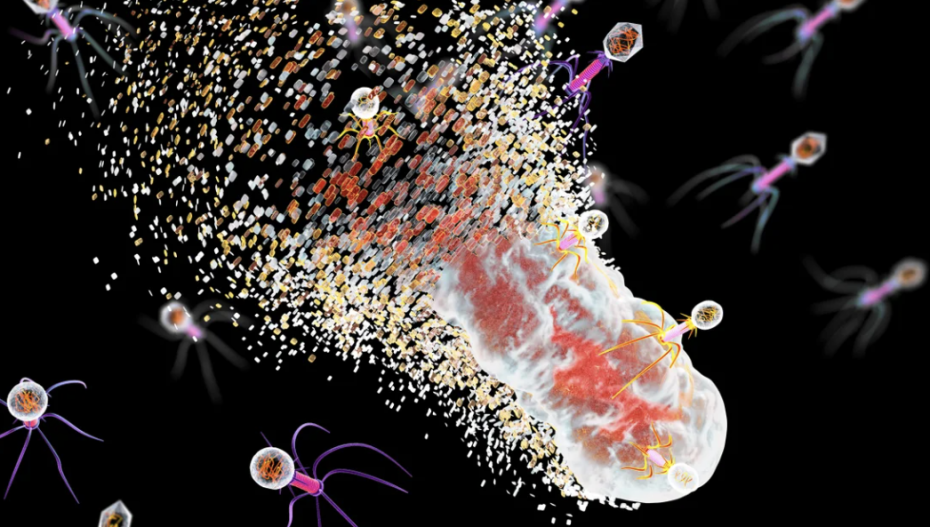Resistance to antibiotics used for treating blood infections, a leading cause of deaths and hospitalisations, saw a significant monthly increase from January 2017 to December 2022, a study has revealed.
The study relied on data obtained from 21 tertiary care centres in 14 states in the country that are part of the Antimicrobial Resistance Surveillance Network (IAMRSN) under the Indian Council of Medical Research (ICMR), whose researchers were also involved in the study.
The ICMR data has indicated the spread of superbugs, i.e., pathogens resistant to most of the available antibiotics, as well as the rapid increase in other bacteria that neutralise the effects of the drugs in patients.
Bloodstream infections significantly impact global health and economics. In 2017, there were about 4.9 crore sepsis cases worldwide, leading to 1.1 crore deaths. In India, the burden is high particularly, with an estimated annual caseload of 1.1 crore and a mortality rate of 30 lakh.
“Our findings indicate significant monthly increases in Imipenem and Meropenem resistance for Klebsiella, E. coli, and Acinetobacter bloodstream infections,” the researchers associated with the ICMR and Indraprastha Institutes of Information Technology (IIIT), Delhi have noted in the study.
Klebsiella, E. coli, and Acinetobacter are common causes of bloodstream infections, while Imipenem and Meropenem belong to a class of strong antibiotics known as Carbapenem, which includes very effective agents most commonly used for the treatment of severe bacterial infections. This class of antibiotics is usually reserved for known or suspected multidrug-resistant (MDR) bacterial infections.
The study also highlighted that Carbapenem resistance in hospital-acquired Klebsiella and Acinetobacter infections preceded that in community-acquired infections.
At the national level, researchers noted, resistance to the Cefotaxime antibiotic used to treat several bacterial infections emerged as a potential early indicator for emerging Carbapenem resistance, proposing a novel surveillance marker.
Antimicrobial resistance (AMR) represents a global health crisis, with an estimated 0.495 crore deaths in 2019 and projections suggesting up to 1 crore annual deaths by 2050, the study has said. Low- and middle-income countries are particularly vulnerable to AMR, a situation exacerbated by high rates of infectious diseases, increased antibiotic use etc. the study has added.
The ‘first multicentric point prevalence survey of antibiotic use at 20 national antimicrobial consumption network (NAC-NET) sites India 2021-22’ by the National Centre for Disease Control and released in January this year has already shown that 57% antibiotics prescribed in India have potential to cause high AMR.
According to numbers cited by the study from other papers, between 2017 and 2022, 5.11 lakh people, including children and the elderly, were hospitalised following infections, and in many cases, they were caused by superbugs and other pathogens included in the list of global priority pathogens of the World Health Organisation.
The spread of pathogens is not uniform in the country. For example, E. coli was most commonly seen in infections in the southern states, while Staphylococcus aureus was prevalent in the northern parts. In the central and north eastern states, on the other hand, the prevalence of Acinetobacter was the highest. Klebsiella, Pseudomonas aeruginosa, and Enterococcus, however, caused infections, including pneumonia, blood or stomach infections, and damage to the liver across the states, and a very high rate of multi-drug resistance was observed in those who got infected with these pathogens.
The primary ICMR data used in the study also showed that infection cases due to multiple drug-resistant pathogens have steadily been rising over the years, from 7,879 cases in 2017 to 21,092 cases in 2022.
“Our research is the first to situate AMR within the context of Sustainable Development Goals (SDGs), revealing a strong association between higher antibiotic resistance and lower SDG achievements. We also introduce the concept of ‘indicator antibiotics’ such as Cefotaxime, whose resistance patterns can serve as early warning indicators for resistance to other critical antibiotics like Carbapenems,” they have said.
Additionally, the study authors have proposed a model-derived AMR scorecard to facilitate targeted interventions and continuous monitoring of AMR in bloodstream infections.
“The national and international relevance of our findings provides a strategic foundation for stakeholders aiming to refine AMR surveillance and policymaking. Implications of all the available evidence,” the researchers have also said.
They said the study accentuates the urgency for regionalised treatment guidelines and AMR policies in India tailored for different demographics, including age and gender.
“Such policies should incorporate local resistance trends, inter-correlations, indicator antibiotics, and the influence of SDG metrics on AMR. The AMR scorecard introduced by our study emerges as a pivotal tool for hospitals, enabling them to effectively augment their AMR surveillance capabilities,” they have noted.












